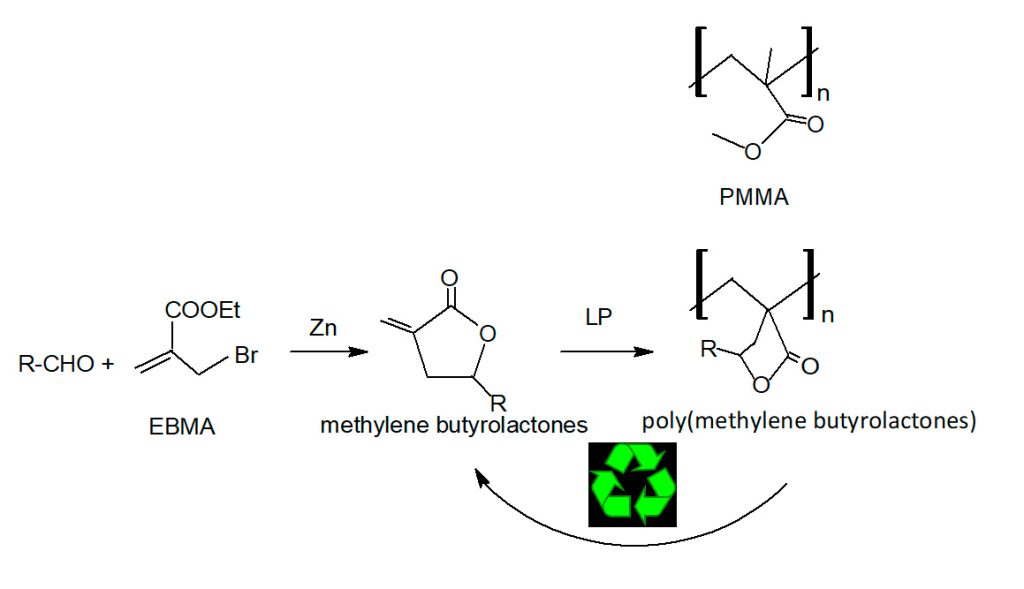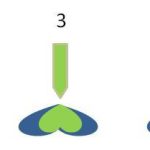Molecularly Imprinted Polymers (MIPs) are polymeric matrices obtained using template-induce formation of specific recognition sites that are able to mimic natural unit sites such as antibodies and antigens. They can be prepared as acrylic or methaacrylic polymers. Furthermore, acrylic polymers, such as poly(methyl methacrylate) (PMMA) are industrially important petroleum-based thermoplastics. As environmental sustainable alternative, biomass-derived monomers are being used to obtain analogs polymers. For instance, cyclic analogue methylene butyrolactones are cyclic analogues of methymethacrylate (MMA); however, its production from biomass is limited. Recently, a one pot synthesis of methylene butyrolactones using aldehyde, Zn and ethyl 2-(bromomethyl)-acrylate (EBMA) via sonication at room temperature has been developed1. Further polymerization to poly(methylene butyrolactones) has been reported using Lewis pair catalyst. Furthermore, efficient thermal depolymerization to obtain monomer in a 99 % yield is reported. Closed-loop recyclability is then claimed1
The poly(methylene butyrolactones) obtained from aldehydes as heptaldehyde, cinnamaldehyde and perillaldehyde show transition temperature (Tg) > 190 °C, with increased thermal and optical properties as compared to PMMA as well as resistance to solvent, heat, and scratching.

1.- Z.-H. Zhang, X. Wang, B. Weng, Y. Zhang, G. Zhang, M. Hong, ACS Polym. Au (2022) https://doi.org/10.1021/acspolymersau.2c00001





